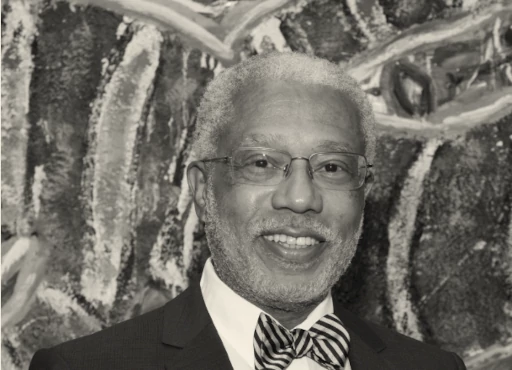
In this guest post, Dr Walter Fluker explores how ethical leaders emerge from specific traditions, reflecting cultural ethos and narratives. He traces the links between this concept, “global citizenship,” and Martin Luther King, Jr.’s idea of a “World House”. Dr Fluker calls for spiritually disciplined, morally anchored leaders committed to justice and compassion. He also shares an Ethical Leadership Toolkit, covering character development, decision-making, ethics, storytelling, and social awareness.
In my 2009 book, Ethical Leadership: The Quest for Character, Civility and Community, I describe ethical leadership as the critical appropriation and embodiment of moral traditions that have shaped the character and shared meanings of a people (an ethos).
In fact, ethical leadership does not emerge from a historical vacuum but from the lifeworlds of particular traditions and speaks authoritatively and acts responsibly with the aim of serving the collective good.
Ethical leaders, therefore, are those whose characters have been shaped by the wisdom, habits, and practices of particular traditions—often more than one—yet they tend to be identified with a specific cultural ethos and narrative. Finally, ethical leadership asks the question of values in reference to ultimate concern.
Leaders from various traditions, therefore, bring different perspectives on morality and what constitutes “global”. Whose “ethics” and whose “globe” are we talking about after all?
Over time, I have modified this definition in specific instances, but the sense is the same. Global ethics, as I refer to it, is deeply intertwined with the notion of “global citizenship.” Global citizenship, in my work, refers “to a sense of belonging to a broader community and common humanity.
It emphasizes political, economic, social and cultural interdependency and interconnectedness between the local, the national and the global.” The term “global citizenship” does not refer to necessarily to legal rights; its significance lies in the united web of humanity and our moral interconnectedness and obligation to nature and the larger world society. This view finds affinity with Martin Luther King, Jr.’s idea of “the World House” and his notion of democratic space.
Martin Luther King, Jr.’s perspective on the civil rights movement was always global, but during his later years his statements about our connectedness with neighbors around the globe were more pronounced. King believed that first there would need to be a reckoning with Western imperialism’s own presuppositions about power.
Before his tragic death in 1968, Martin Luther King, Jr. reminded this nation that we no longer live in a small house that race built, but rather we have inherited a world house. He suggested in clear and strident language that we must learn to live together as brothers and sisters or die apart as fools. King was acutely aware of the need for a broader interpretive framework for understanding what he perceived as a crucial passage in history. He suggested that the struggles of African Americans must be understood in light of a “shifting” of the West’s basic outlooks and philosophical presuppositions about “power.” King argued:
We have inherited a large house, a great ‘world house’ in which we have to live together––black and white, Easterner and Westerner, Gentile and Jew, Catholic and Protestant, Moslem and Hindu––a family unduly separated in ideas, culture and interest, who, because we can never again live apart, must learn somehow to live together with each other in peace. However deeply American Negroes are caught in the struggle to be at last home in our homeland of the United States, we cannot ignore the larger world house in which we are also dwellers. Equality with whites will not solve the problems of either whites or Negroes if it means equality in a world society stricken by poverty and in a universe doomed to extinction by war.
The primary aim of my work in ethical leadership is to explore new strategies to identify, recruit, educate, and train a new generation of leaders from black and other historically oppressed communities in global citizenship. These emerging leaders, I argue, are in particular need of tools to foster a sense of identity and human flourishing within a global world where the porous boundaries of nation-states are giving way to a new movement of inspiring, transformational leaders.
With movements among youth in the United States against gun violence, calls for eco-justice, and the protests against the murder of young black and brown men and women, King’s notion of democratic space as being glocal provides opportunities for ethical leadership and global citizenship training that is not limited by narrow, nostalgic, and exclusive visions of statehood.
To the contrary, our present political and cultural context presents us with the opportunity to focus on a new generation of leaders who are spiritually disciplined, intellectually astute, and morally anchored in the virtues of defiant acts of courage undergirded by glocal campaigns of justice and compassion for the least of these.
Finally, we have also developed an Ethical Leadership Toolkit. Through video exercises, discussion forum questions, and journal reflections, learners are guided to develop their own Ethical Leadership Toolkit. This Toolkit, designed for leaders who engage in complex ethical questions in public space, includes the following:
The Ethical Leadership Model
A conceptual tool that assists leaders in the personal development of virtues connected to morally-anchored character, the development of public skills and capabilities related to social practices and values of transformative civility, and the development of spiritual practices of moral excellence associated with the development of a sense of community.
The Ethical Decision-Making Model
A practical guide for determining appropriate courses of action based on three steps pertaining to ethical decision-making: discernment, deliberation, and decision.
Ways of Doing Ethics
A conceptual framework outlining traditional ethical perspectives and exploring guiding questions that assist leaders in making appropriate decisions in various contexts and situations they encounter in public space.
Remembering, Retelling and Reliving Stories
A creative exercise that engages leaders in a continuous cycle of remembering, retelling, and reliving their personal stories within the contexts of larger social-historical narratives as a process of lifelong learning.
Looking, Listening and Learning
A tool that teaches leaders to become increasingly aware of how one’s life’s stories intersect with the public demands for discerning, deliberating and deciding on appropriate courses of action. It also assists leaders in attending to the social and public contexts in which they are leading.
Dr Walter Earl Fluker, the distinguished founder of Walter Earl Fluker & Associates, holds several prominent academic positions, including being a Distinguished Professor at the Howard Thurman Center, Hartford University for Religion and Peace, and a Professor Emeritus of Ethical Leadership Boston University. He is renowned for his expertise in ethical leadership and has contributed significantly to the field through his publications, including “Ethical Leadership: The Quest for Character, Civility, and Community” (2009), “The Ground Has Shifted: The Future of the Black Church in Post-Racial America” (2016), and the recently released “The Unfinished Search for Common Ground” (2023). Dr. Fluker’s extensive experience includes serving on various committees and boards, and he has been recognized with numerous prestigious honors, including the 2023 Roosevelt Institute Freedom of Worship Award. His global influence extends to international initiatives, making him a distinguished figure in the field.
